Top Iran Cleric Acknowledges Impact Of US Sanctions On Economy
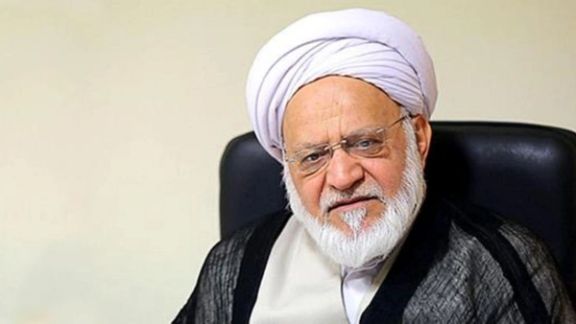
A leading conservative cleric and regime insider, Gholamreza Mesbahi Moghaddam, has said that without talks with the West the situation for Iran will remain difficult.

A leading conservative cleric and regime insider, Gholamreza Mesbahi Moghaddam, has said that without talks with the West the situation for Iran will remain difficult.
A news website in Tehran quoted Moghaddam, a member of several key government bodies, as saying, “Our economic conditions are unfortunately under the influence of increasing American sanctions and pressures, especially on our currency, leading to its depreciation.”
Iran’s currency has halved in value since mid-2022 reaching unprecedented lows in the past six months, fueling more inflation that can lead to more antigovernment protests. On Sunday the rial was trading at 535,000 to the US dollar, while before the United States imposed sanctions in 2018, it was trading at around 35,000.
Moghaddam is one of the few clerics who studied economics said that in addition to sanctions, psychological factors also hurt the value of the rial. He argued that with nuclear negotiations with the West at a standstill and recent unrest in Iran, confidence in the economy and the currency have weakened.
The latest point-to-point inflation rate has reached 64 percent, and some experts are warning of hyper-inflation.
The influential cleric tried to sound optimistic by praising some recent government measures adopted to help the rial, but the currency has a downward trajectory as long as Iran is unable to export sufficient oil and balance its budget.
Despite the economic crisis, Iran’s foreign and nuclear policies that are controlled by Supreme Leader Ali Khamenei have not changed so far to ease tensions with the West.
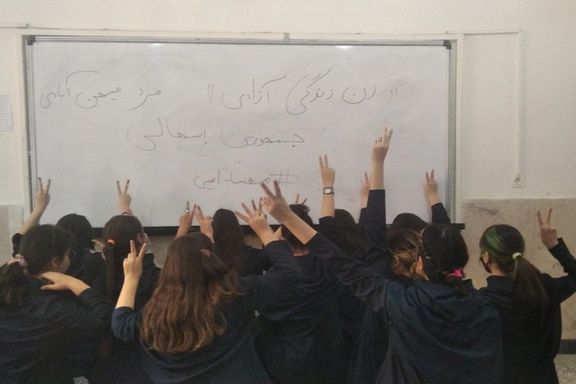
Experts in Iran concur that Generation Z, men and women born after 2000, were the driving force in recent nationwide protests and the Women, Life, Freedom movement.
In an April 1 report, Khabar Online website has interviewed 8 social scientists and commentators about Generation Z's role in Iran's new revolution. Mostafa Mehraeen, a sociologist told the website that "This generation has a thorough understanding of life and human beings and wishes to spread peace on earth." Mehraeein further described Generation Z as "a generation that is an expert on philosophy without having studied it."
Referring to views that this generation is cut off from the past, Mehraeein said that various generations are not separate from each other. In fact, we live in the past, present and future at the same time. "We are facing a generation that has been educated by the previous generation," he said.
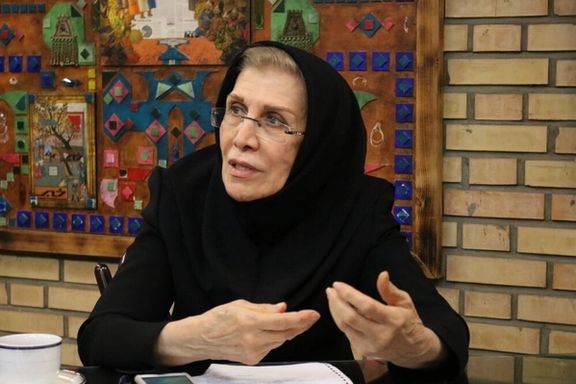
Demographer Shahla Kazemipour also pointed out that the Generation Z is not a separate entity far from the mainstream society. But they do not need to be in the streets to see embezzlements and financial corruption by officials. They can see everything on social media from behind their computer monitors.
She added, "While the previous generation came from families with up to 7 children, Generation Z comes from smaller families who can spend more on their children's education. At the same time, unlike the previous generation, they have access to communication tools such as the Internet. So, their world is bigger than Tehran or Iran. That is why they are socially more mature than the previous generation.
Mohammad Taghi Fallah, a teacher, said, "Generation Z is looking for its own independent identity. In their world, the individual is an active member of the society and his or her uniqueness is the most eye-catching characteristic element.
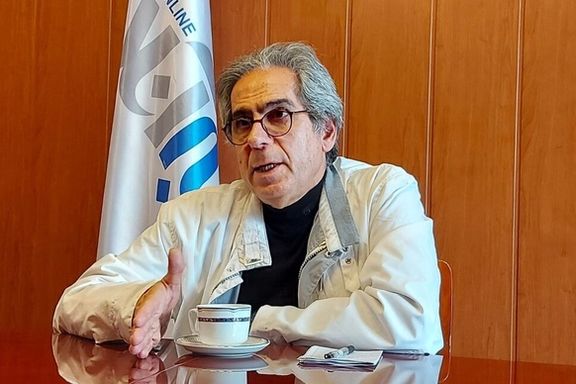
Ahmad Bokharaei, a sociologist, said the members of Generation Z were in the forefront of the protests in Iran. They were brave and had very little to lose. Although protesters were from different age groups but Generation Z's presence was more visible.
He warned that if their voice is not heard, the chances are that they will be disillusioned and left with no more motivation. This can even lead them to commit suicide or try drugs.
Another sociologist, Mehdi Ghavamipour, told Khabar Online that although there is a generational gap in most other societies, the characteristics of Iran's ideological society has made the divide between Generation Z and previous generation wider. He added that the conflict between traditions and modernity has made Generation Z's interests, demands and prejudices different from those of other generations.
He added that some scholars see this as a gap between the official culture and the pop culture as well as the impact of the crisis of inefficiency in the government. This new generation, he said, stresses the significance of modern life and ignores or totally rejects traditional concepts. They follow a different lifestyle than the previous generations.
Mohammad Reza Niknejad, a teacher, said the main characteristic of this generation is its bravery and knowledge. They have proven that older individuals are not necessarily more knowledgeable than the youths. In fact, in many families, the elderly have realized this difference and adapted their lifestyle to what their children want.
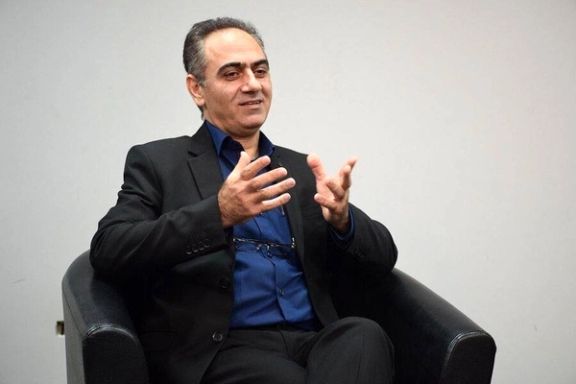
Iranian sociologist Mostafa Abroshen, on the other hand, says Generation Z is a manifestation of the post-modern approach in the Iranian society. This generation challenges and questions both traditions and modernity. They demand pluralism and oppose unilateralism. They also challenge the traditional society's sanctities. They look down at the kind of obedience that was prevalent in the traditional families.
Nearly all these characteristics have been observed during more than six months of protests in Iran when the new generation challenged the values propagated by Iran's traditional clerics and the regime during the past four decades.
Nargess Malekzadeh, a teacher, observed that "Generation Z was not born during the 2022 protests. They are the children of a silently protesting previous generation that nurtured the new generation."
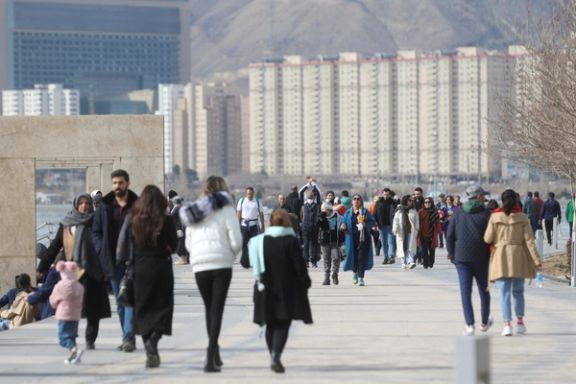
Conflicts between vigilantes and women defying hijab in public occur almost daily now while authorities including the President insist on enforcement of rules.
There has been a torrent of comments by clerics and hardliners in recent days against women who ignore hijab rules, while thousands appear in public without a headscarf. As regime vigilantes are encouraged to stop women and admonish them, another serious conflict is brewing in the country.
A video from the CCTV of a convenience store in Shandiz near the religious city of Mashhad went viral on social media Friday that showed a man dumping a large tub of yogurt after an argument on the head of a ‘hijabless’ woman and her mother, who was wearing a headscarf.
The man, apparently a member of the Revolutionary Guards’ Basij militia, had been carrying out his Islamic duty of “calling to virtue and forbidding wrong”. Local authorities said Saturday the man was arrested for disturbing public peace and insulting the women. Officials said that carrying out the duty of hijab enforcement should remain limited to verbal warnings only.
Both women were also arrested for defying hijab rules and the owner of the business was given a warning for allowing violation of the hijab law on his premises.
Dr Mohsen Borhani, a professor of criminal law at Tehran university, who was recently sacked for criticizing the regime after the execution of four young protesters, argued in a tweet Friday that even according to Islamic Sharia and laws, carrying out the religious duty of calling to virtue and forbidding wrong should never go beyond a verbal warning.
Attacking people and their property or violating their dignity and rights are criminal acts and victims have the right to self-defense according to Article 156 of the Islamic Penal Code of Iran, Borhani, a well-known religious scholar, wrote.
Moderate Muslims, including some clerics, have also been critical of hardliners intimidating women to impose the hijab.
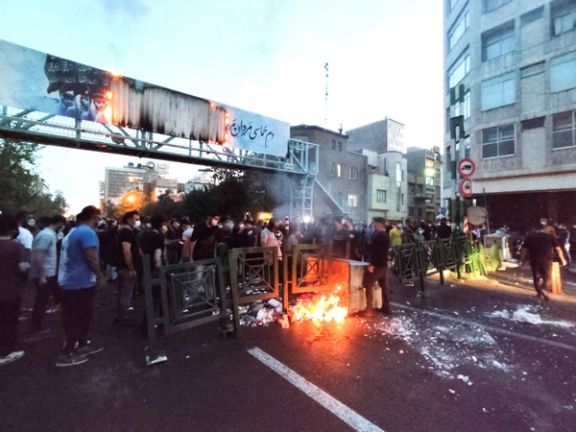
“This was not a tub of yogurt that was thrown on a girl’s head. It was bigotry and a putrid sludge crammed into the head of the yogurt-thrower over the years,” reformist politician and cleric Mohammad Ali Abtahi who served as vice-president under Mohammad Khatami in late 1990s and early 2000s protested in a tweet.
‘Hijabless’ girl in Gonbad-e Kavous, a rather conservative city in northeastern Iran
In July 2022, after weeks of harsher measures on the streets, President Ebrahim Raisi ordered all government entities to strictly implement a “chastity and hijab” law approved by the Supreme Cultural Revolution Council under hardliner Mahmoud Ahmadinejad in 2005. He insisted again today, Saturday, that women should abide by the hijab rules.
“Chastity and hijab are religious matters and all pious Muslims stress on its necessity. Hijab protects the individual and the society from all harms and deviations,” he said, adding that since there is a law, even those who say they do not believe in hijab must abide by the rules. “Women and girls have shown that they abide by the law and will continue to do so.”
In the past four decades women generally demonstrated their opposition to compulsory hijab by making their headscarves smaller and letting their hair cascade on their shoulders from under it or making their tunics tighter and trousers shorter, wearing colorful clothes and putting on make-up.
Authorities referred to these women’s hijab as ‘bad’ or ‘improper’ and called them ‘bad-hijab women’.
It was only in 2018 that some women in Tehran and other larger cities began to wear their headscarves on their shoulders rather than their heads wherever they could. Now many are not even carrying a headscarf in their bag to use if they get into trouble. They are referred to as ‘hijabless’.
Defiance of hijab rules as a form of civil disobedience has hugely grown across the country after the death the 22-year-old Mahsa (Jina) Amini in custody of morality police in mid-September. Many believe that there is no sign ‘hijabless’ women will allow to be bullied again into wearing the hijab.
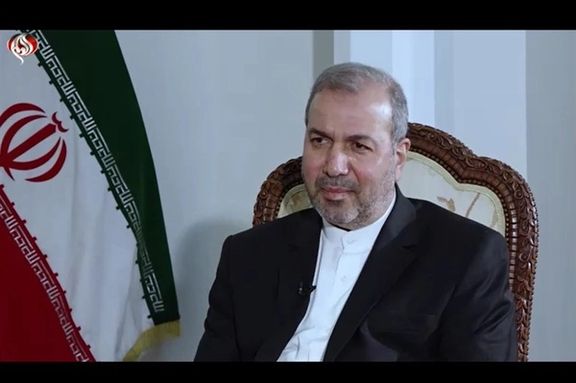
Iran's ambassador to Iraq claims the government of Baghdad owes Tehran 11 billion dollars for the import of Iranian electricity and gas.
Mohammad Kazem Al-Sadegh made the comments in an interview with an Iraqi network on Saturday adding that 80% of Iraq's water comes from Turkey and between 8-10% of it is provided by Iran.
Since introducing ‘maximum pressure’ sanctions and leaving the JCPOA in 2018, the US has threatened punitive action against any third party buying Iran’s oil or dealing with its financial sector.
Iraq is only allowed to pay for gas and electricity imported from Iran with Iraqi dinars. Baghdad transfers the money to the Central Bank of Iran in dinars through the Trade Bank, and Tehran is only allowed to use the money to import goods from the Arab country.
Due to the severe imbalance in bilateral trade and the unused assets of Iran's dinar due to the export of electricity and gas, the Islamic Republic considers it as the Iraqi government’s debt.
Al-Sadegh further added that the drought crisis in Iraq has nothing to do with Iran’s cutting of the flow of rivers to Iraqi soil.
The Iraqi government has repeatedly criticized Iran's cutoff of river flow and demanded negotiations with the Islamic Republic, but the Iraqi authorities say Tehran avoids negotiations regarding the issue.

Javad Emam, a prominent reformist politician in Iran says it is time for hardliner "principlists" to acknowledge defeat and apologize to the nation for current crises.
Speaking to Rouydad24 news website, Emam referred to the divides among Iran's conservatives and said unlike the conservative camp, reformists are united under an umbrella organization, the Reform Front, and there is no major dispute among them.
However, as one of the closest political figures to Iranian reformists de facto leader former President Mohammad Khatami, Emam acknowledged that there is in fact a divide among the reformists over how to approach next year's parliamentary elections.
He said some reformists are keen to take part in the elections despite the fact that the regime did not allow them to run for parliament or the presidency in 2020 and 2021. On the other hand, he said, some reformists believe that the camp should boycott the elections. However, he claimed that the divide among the reformists is not serious, and they are standing united in the Reform Front.
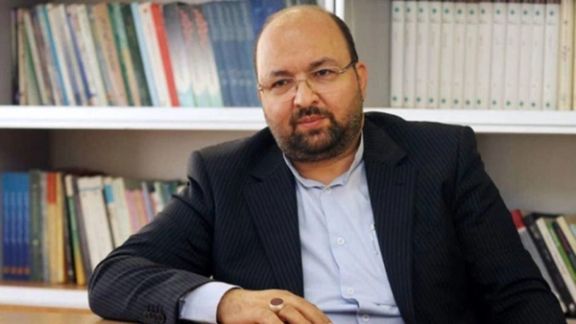
This comes while nearly all Iranian politicians who have talked about restoring people's trust in the political system in the aftermath of six months of nationwide protests, have suggested that the regime should facilitate political participation and allow reformist candidates to run. Nonetheless, Iranians who took to the streets in protest against the regime made it clear in their demonstrations that they no longer trust reformist or conservative politicians and parties.
When a reporter pointed out that an apology by Iran's conservatives would be an unprecedented political act in Iran, Emam said "not only the conservatives, but all the three powers of the government who are responsible for the current situation and the people's dissatisfaction by furthering non-competitive elections and bringing about the country's worst economic crisis and its international isolation should apologize to people."
Emam further made it clear that "the Judiciary, the parliament, the executive body, the Guardian Council and the Assembly of Experts share responsibility for the current crisis and should be accountable before the nation."
He added that the current situation is the price the government is paying for ignoring the reformists and pushing them aside from the country's political arena.

While Emam is asking for an apology, Javad Hosseini-Kia, a conservative lawmaker has said that members of parliament are prevented from impeaching President Ebrahim Raisi’s ministers in the light of the worsening economic situation.
"Majles Speaker Mohammad Bagher Ghalibaf stops impeachment motions and stresses that it is not an expedient move," he told local media.
He added that the people have serious complaints about the performance of the ministers of economy, housing and industry because of their inefficiency and failure to stand by the promises they made to the nation when the Raisi administration took office in 2021. He also blamed the Planning and Budget Organization for most of the country's economic problems.
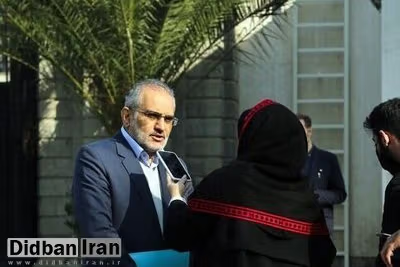
On the other hand, Vice President for Parliamentary Affairs Mohammad Hosseini denied any problem between the government and the parliament, and added that lawmakers lack any motivation to impeach the ministers. Hosseini claimed that there have been only two calls for impeachment during the past 18 months.
However, the senior Raisi aide acknowledged that "there are still several impeachment motions in progress, but we have to wait for due legal process. However, I have talked with the lawmakers who initiated these motions, and it appears that they no longer have any motivation to continue the effort."
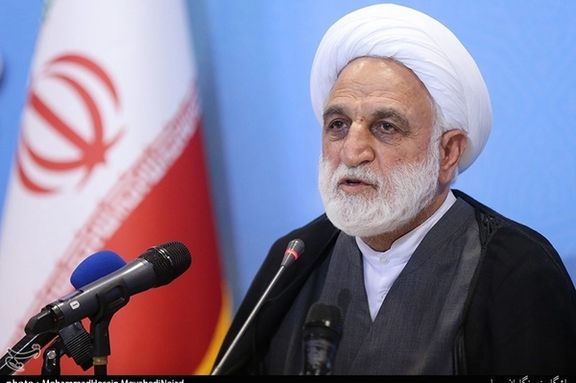
Iran’s Chief Justice Gholamhossein Mohseni Ejei warned of strict punishment for women flouting hijab rules.
As the regime continues to fight a losing battle against the hijab rebellion, he said Saturday that “removing hijab is considered as enmity with values” and people who do not obey the rule will be "punished".
As the number of Iranian women defying compulsory hijab rules are on the rise, regime officials keep warning them that the Islamic Republic will not back down on the dress code.
He further threatened to prosecute women who appear in public unveiled, saying that “unveiling is tantamount to enmity with (our) values. [Those] who commit such anomalous acts will be punished and prosecuted without mercy,” however he declined to mention what the punishment entails.
Elsewhere in his remarks, Ejei added that law enforcement forces are “obliged to refer obvious crimes and any kind of abnormality that is against the religious law and occurs in public to judicial authorities”.
Following the death in custody of 22-year-old Kurdish girl Mahsa Amini for ‘improper hijab’ in September, a growing number of Iranian women and girls have been ditching their veils during the nationwide protests.
Iranian women now are risking arrest by going out without headscarves in public places, streets, malls, shops, banks, cafes, and even airports.
The comments by Iran's chief justice follow warnings from the interior ministry reinforcing the regime’s compulsory hijab law.
Hijab was described in the statement as one of the “foundations of the civilization of the Iranian nation” and “one of the practical principles of the Islamic Republic.”
It also called on the ordinary citizens to confront the women who refuse to wear hijab.